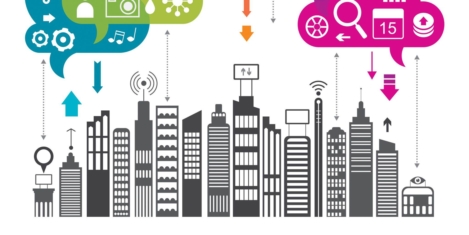October 26, 2017
Saudi Arabia announces plans for $500 billion mega city in region
 Following last week’s announcement that Toronto is to create a digital city along its waterfront, Saudi Arabia has unveiled plans to build a $500 billion ‘mega-city’ spanning parts of several countries. The plans announced this week are a response to the need for the kingdom to produce a more diverse economic base and will create a zone that will run on alternative energy and have its own legal system and employment laws. The region will be known as Neom, a name derived from terminology meaning ‘New Future’ and will span parts of Saudi Arabia, Egypt and Jordan along the Red Sea coastline as a 26,500 square kilometre development of previously untouched land (pictured). Plans inevitably include technologies such as driverless cars, drones and robots, and were unveiled by Crown Prince Mohammed bin Salman at the Future Investment Initiative in Riyadh this week. The zone is expected to cost around $500 billion (£380.5 billion) and will be powered entirely by renewable energy and focus on industries including energy, biotechnology, food, advanced manufacturing and entertainment.
Following last week’s announcement that Toronto is to create a digital city along its waterfront, Saudi Arabia has unveiled plans to build a $500 billion ‘mega-city’ spanning parts of several countries. The plans announced this week are a response to the need for the kingdom to produce a more diverse economic base and will create a zone that will run on alternative energy and have its own legal system and employment laws. The region will be known as Neom, a name derived from terminology meaning ‘New Future’ and will span parts of Saudi Arabia, Egypt and Jordan along the Red Sea coastline as a 26,500 square kilometre development of previously untouched land (pictured). Plans inevitably include technologies such as driverless cars, drones and robots, and were unveiled by Crown Prince Mohammed bin Salman at the Future Investment Initiative in Riyadh this week. The zone is expected to cost around $500 billion (£380.5 billion) and will be powered entirely by renewable energy and focus on industries including energy, biotechnology, food, advanced manufacturing and entertainment.











 Accommodation and food services, manufacturing, and transport industries will be hardest hit by limits on movement of EU and non-EU workers following Brexit, a new report has claimed. The latest edition of Mercer’s
Accommodation and food services, manufacturing, and transport industries will be hardest hit by limits on movement of EU and non-EU workers following Brexit, a new report has claimed. The latest edition of Mercer’s 






 New research from AXA suggests that small firms are sceptical about the prospects of technologies such as 3D printing, robotics and driverless cars affecting their workplace in the near future. While more than 40 per cent of small businesses still don’t have a website, the study of 898 firms claims that most of these plan to move online in the next twelve months. If these plans are fulfilled, only seven per cent of UK businesses will remain offline by this time next year. However, just one in five plan to migrate to the Cloud and only six per cent say they expect to adopt smart technologies. Driverless cars, which are set to hit UK roads as early as 2020, have an equally low resonance, as just eight per cent of business owners expect they will travel in one. Businesses were also highly sceptical when it comes to 3D printing. Just two per cent of UK businesses who might use the process expect to see it used here ‘during their lifetimes’.
New research from AXA suggests that small firms are sceptical about the prospects of technologies such as 3D printing, robotics and driverless cars affecting their workplace in the near future. While more than 40 per cent of small businesses still don’t have a website, the study of 898 firms claims that most of these plan to move online in the next twelve months. If these plans are fulfilled, only seven per cent of UK businesses will remain offline by this time next year. However, just one in five plan to migrate to the Cloud and only six per cent say they expect to adopt smart technologies. Driverless cars, which are set to hit UK roads as early as 2020, have an equally low resonance, as just eight per cent of business owners expect they will travel in one. Businesses were also highly sceptical when it comes to 3D printing. Just two per cent of UK businesses who might use the process expect to see it used here ‘during their lifetimes’.












March 31, 2016
Government needs to wise up to the Fourth Industrial Revolution 0
by Mark Eltringham • Comment, Property, Public Sector, Technology
(more…)